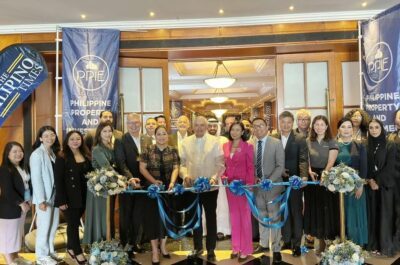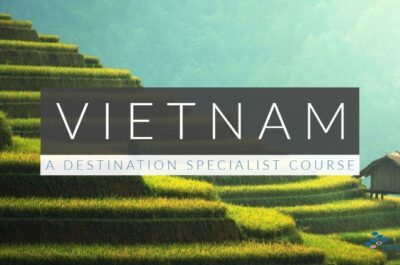The World Tourism Organization (WTO), in its new capacity as Specialised Agency of the United Nations, and the United Nations Environment Programme (UNEP) wish to encourage all countries…
The World Tourism Organization (WTO), in its new capacity as Specialised Agency of the United Nations, and the United Nations Environment Programme (UNEP) wish to encourage all countries to ensure that their policies and actions for the development and management of tourism fully embrace the principles of sustainability. This is why the two organizations have combined their efforts to condense all aspects of the sustainability of tourism into a single first joint publication: Making Tourism More Sustainable: a Guide for Policy Makers. It was launched simultaneously by the two organizations in Madrid and Paris the 6th of September.
The purpose of the new WTO-UNEP publication is to provide tourism decision makers with guidance and a framework for the development of policies for more sustainable tourism, a toolbox of instruments that they can use to implement these policies, and some selected case studies.
Background
The concept of sustainable development has become widely accepted as the way to a better, more humane and socially responsible future. In parallel, the tourism sector is becoming increasingly important in the global economy.
In this context, according to how it will be planned, developed and managed, the massive growth predicted for tourism in the forthcoming years could provide excellent opportunities for spreading prosperity but could also represent considerable challenges and potential threats to the environment and local communities. For instance, climate change is recognised as a major global issue, with significant implications for tourism. Similarly, sustainable forms of tourism can be strategically important for preserving delicate ecosystems and biodiversity, providing a sustainable form of economic use as opposed to more aggressive industrial activities. There is also an increasing appreciation of the potential role of tourism in addressing world poverty, through bringing a source of income to the heart of some of the poorest communities.
Aim of the new Guide
This new Guide is a basic reference book and provides a blueprint for governments to formulate and implement sustainable tourism policies. It builds on UNEP and WTO’s previous work on different aspects of sustainability. In addition to earlier work by WTO and UNEP, an extensive research survey was undertaken among WTO Member States, in 2003 and 2004, to identify specific policies and tools applied in their territories that had effectively contributed to making their tourism sector more sustainable. The conclusions drawn and the policies and tools recommended in this Guide are therefore based on real cases, collected from around the world, that have proven to be effective and successful in achieving the aims of sustainable development.
The Guide is aimed primarily at governments, at national or local level, while being also relevant to other public and private organizations to the extent that they are affected by, and can affect, tourism policies and their implementation. Indeed, all tourism stakeholders can benefit from the sector being made more sustainable:
Tourism enterprises, which, while seeking long term profitability, should be concerned about their corporate image, the relationship with their staff, and their impact on the global environment and that immediately around them.
Local, host communities, which are seeking increased prosperity and new employment opportunities, but without exploitation or damage to their quality of life, including their culture, beliefs and traditions.
Environmentalists, who are concerned about the harmful impacts of tourism upon the natural environment, but also recognise that it is a valuable source of income for conservation and a unique, effective tool for further developing environmental awareness among the general public.
Tourists, who are seeking a high quality experience in safe and attractive environments, in which they can appreciate different cultures or simply enjoy different climates. Tourists are also becoming more aware of the impacts of their travelling, while not willing to renounce to it, but rather becoming more selective about their choice of tourism destinations and operators.
In seeking more sustainable tourism, governments must recognise the different positions and motivations of these stakeholders and work with them to achieve common goals. Sustainability is the responsibility of all those involved in tourism, but governments must play a leading role. They should provide an environment that enables and encourages the private sector, tourists and other stakeholders to respond to sustainability issues. This can best be achieved by establishing and implementing a set of policies for tourism development and management, drawn up in concert with others, policies that place sustainability at its centre.
Structure of the publication
First, the Guide introduces some key principles and an agenda for more sustainable tourism, framed around a set of 12 Aims. These 12 Aims for more sustainable tourism are then discussed in turn and policy areas relevant to each of them are identified.
In a next step, it presents the right structures through which governments can work with others towards more sustainable tourism, and the strategies that are required to develop and drive policies and actions. Particular attention is paid to the relationship between national and local structures and strategies for sustainable tourism.
Then it looks at the process of developing a tourism strategy that embraces sustainability and identifies some of the strategic choices that need to be made. It looks at product and market selection, and introduces the tools that may be used to influence tourism development, the operation of tourism enterprises and the behaviour of visitors.
Finally, a detailed description is given of a set of instruments, and of how they can be applied by governments. They include the use of sustainability indicators, planning, infrastructure provision, legislation and regulations, and a set of voluntary and facilitating instruments.
In addition to these guidelines, the publication presents selected case studies from the following countries: Australia, Bulgaria, Costa Rica, Egypt, Ghana, Mexico, New Zealand, South Africa, Spain and United Kingdom.
The two organizations are confident that, in applying and adapting guidelines on sustainability in tourism, such as the ones included in the publication Making Tourism more Sustainable: a Guide for Policy Makers, the growing tourism sector can contribute to the construction of a more sustainable future.
Theodore is the Co-Founder and Managing Editor of TravelDailyNews Media Network; his responsibilities include business development and planning for TravelDailyNews long-term opportunities.
















































































